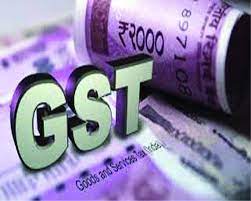NEW DELHI, July 6: The GST Council is likely to discuss a demand of industrial units located in 11 Himalayan and North Eastern states for reimbursement of full Central GST and 50 per cent of net Integrated GST paid, sources said.
Currently, Centre reimburses 58 per cent of net CGST and 29 per cent net IGST under the a central Government scheme — ‘Scheme of budgetary support’ notified in October 2017.
However, industrial units located in the Himalayan and North Eastern States have been seeking implementation of a mechanism for reimbursement of balance 42 per cent of the CGST and 21 per cent of the IGST paid by them in cash along with appropriate interest.
States are, however, reluctant to reimburse their share of CGST and IGST collection they receive on account of tax devolution citing unsatisfactory revenue growth and implementation of similar schemes by the state to incentive industries.
In the pre-GST era of excise duty, industrial units Jammu & Kashmir, Himachal Pradesh, Uttarakhand, Arunachal Pradesh, Assam, Manipur, Meghalaya, Mizoram, Nagaland, Sikkim and Tripura enjoyed a tax holiday.
Sources said in view of the Supreme Court judgement in October, 2022, and further directions by the High Courts of Delhi, Meghalaya and Guwahati, the issue would have to be discussed by the GST Council in its 50th meeting on July 11.
The GST Council, chaired by the Union Finance Minister and comprising state counterparts, had in its second meeting in September, 2016, unanimously decided that all entities exempted from payment of indirect tax under any tax incentive scheme shall pay tax in the GST regime.
Goods and Services Tax (GST), which subsumed 17 local taxes and 13 cesses, was rolled out on July 1, 2017.
The Council had then decided that Centre and state governments on their own can decide if it wants to continue with any incentive given to specific industries in existing industrial policies of States or through any schemes of the Central government.
In case the state or Central government decides to continue any existing exemption/incentive/deferral scheme, then it shall be administered by way of a reimbursement mechanism.
Industry has filed several writ petitions in the Supreme Court and High Courts saying that the government had replaced the incentive available to the industrial units under the erstwhile indirect tax regime.
As per the industry, exemption from 100 per cent of output central excise duty liability was replaced with and limited to reimbursement of 58 per cent of net CGST and 29 per cent net IGST paid in cash by the eligible manufacturing units after utilizing the credit available.
They argued that these units had made heavy investments in the states based on different industrial promotion schemes of the government of India due to the notified excise tax holiday.
The Supreme Court in its October 17, 2022, judgement pertaining to a case filed by Hero Motocorp Ltd on the issue held that though the appellant might not have a claim in law, but they did have a legitimate expectation that their claim deserved due consideration.
“Taking into consideration that … Lakhs of persons are employed in such industries, we are of the view that it will be appropriate that such states should also consider to correspondingly reimburse such units out of the share of revenue received by them through devolution from the Central government.
“We further find that it will also be appropriate that the GST Council considers making appropriate recommendations to the States in that regard, the Supreme Court had said.
In view of directions given by the Supreme Court and High Courts, various representations have been received wherein GST Council has been requested to devise an appropriate mechanism and direct the State governments to reimburse balance 42 per cent of the CGST and 21 per cent of IGST paid by them during the eligible period along with applicable interest in order to make the projects located in Himalayan and North Eastern states economically viable.
Of the 11 states, only J&K is currently reimbursing the balance 42 per cent of the CGST collections which are devolved to the states.
States like Uttarakhand and Meghalaya have said that GST revenue growth of the states was not satisfactory and that a substantial portion of tax collected from the State is moving out in the form of IGST.
They also said that since the states have their own industrial policy and have undertaken several policy measures and incentives and, therefore, are not in a position to reimburse the remaining portion of CGST/IGST. (PTI)


